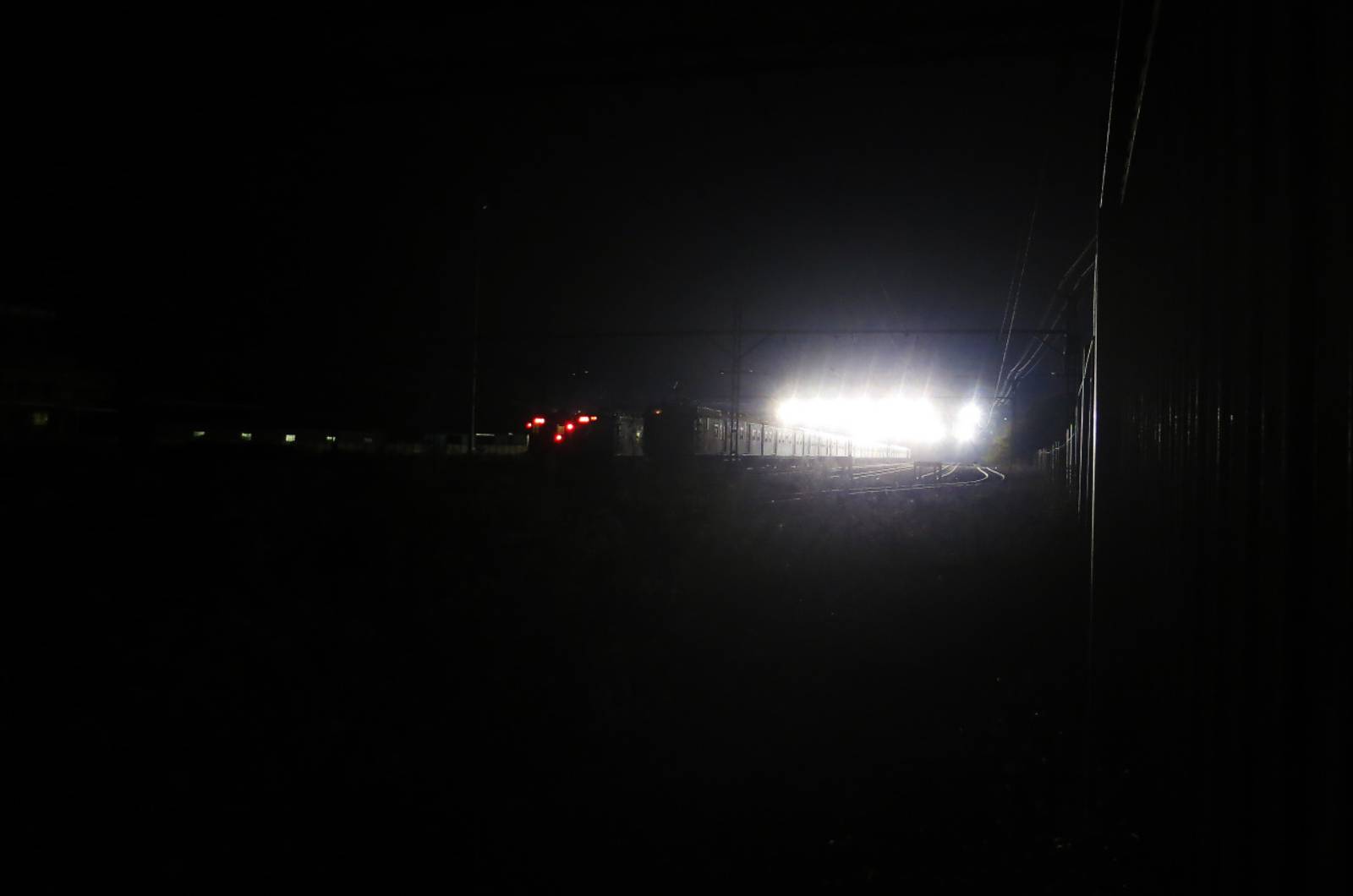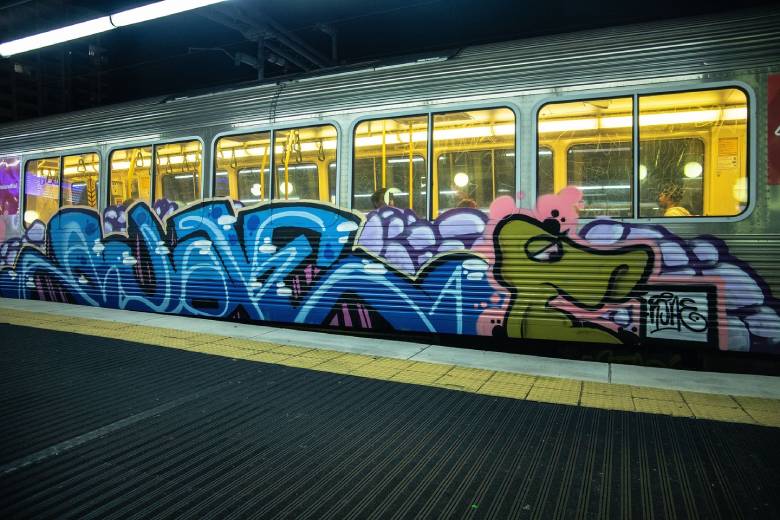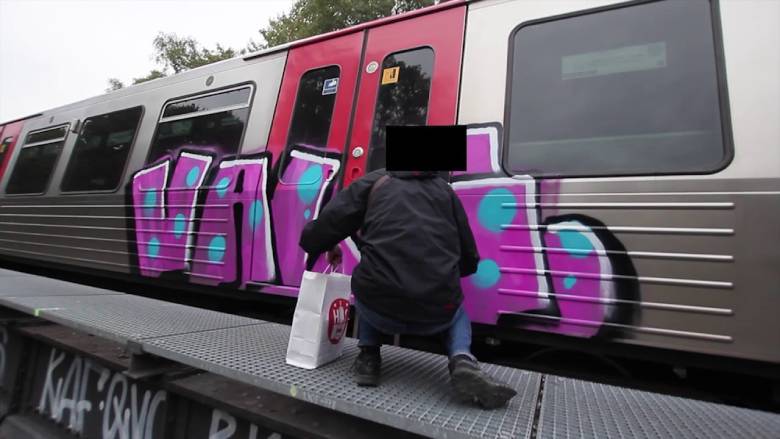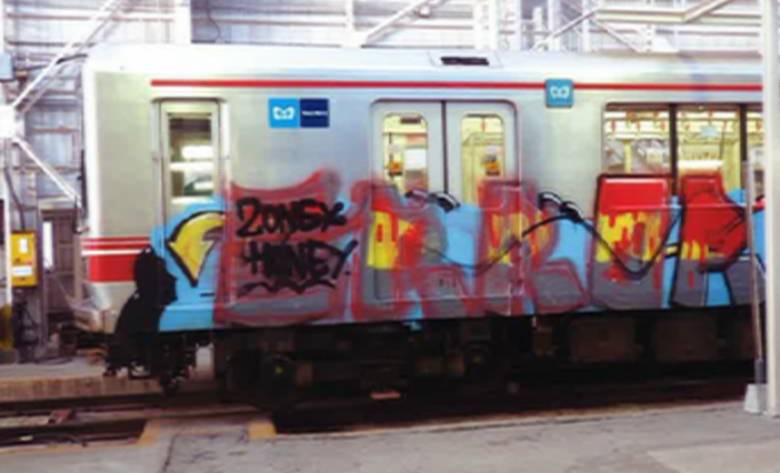
Last month’s post gave us food for thought. The Clerc‘s situation is unique, but there have been convictions and sentences associated with graffiti that we find disproportionate.
And that’s without getting into the consequences.
But which countries have the harshest laws? What are the penalties: money, prison, physical punishment? What are the most notorious cases? Let’s find out. And make sure to do your research on what’s going on in each country before you visit.
Year by year, around the world, anti-graffiti laws are getting tougher. We understand that if you paint graffiti, you understand the risks. That said, there are sentences and punishments that never cease to surprise us.
For example, the inclusion of physical punishment as a disciplinary measure and/or penalty is one of them. This summary will help you gain some clarity on the topic.
Singapore
Singapore is known for its harsh anti-graffiti laws. According to the Act of 1966, penalties can include:
- Fines of up to 2,000 SGD, about €1400/$1500.
- Caneing, a maximum of eight strokes.
- Imprisonment, up to three years.This applies both to locals and foreigners. The most famous case occurred in 2010. Oliver Fricker, a Swiss national, was arrested in Singapore for painting a subway car along with another writer of British origin who managed to escape. Fricker was sentenced to five months in prison and three strokes of the cane (caneing). He also had to pay a fine. The Brit still has an outstanding warrant for his arrest.

Malaysia
With a similar policy to that of Singapore, with severe punishments for those who commit acts of vandalism (including graffiti), the law allows:
- Caning.
- High fines and imprisonment.Malaysia is a federal country, which means that certain laws may vary from state to state.
The most notorious case, in 2012, two Swiss writers painted the KMT in Kuala Lumpur. They got caught, paid a fine, and were sent to prison, although we don’t know if they were extradited.
United Arab Emirates
This Persian Gulf nation has zero tolerance for graffiti. It is a country that prides itself on its cleanliness; painting is illegal (in principle) and the penalties consist of:
- Very high fines, imprisonment and deportation in the case of foreigners.
The most famous case occurred in 2015. Two Swiss nationals, André Gauthier and Yves Leresche, were arrested for painting Dubai subway cars. They were sentenced to three months in prison and ordered to pay heavy fines. In addition, the authorities confiscated their passports and detained them while they paid repair costs.

The United States
In the United States, the severity of anti-graffiti laws varies according to state and city. Some, such as Los Angeles and New York, have very strict regulations:
- High fines (in some cases, they can exceed $10,000 depending on the damage) and jail sentences (ranging from several days to several years).
One of the most high-profile cases occurred in Los Angeles. A young man named Jaime Marquez was arrested in 2010 and was sentenced to six years in prison and ordered to pay $10,000 USD in damages.
Australia
In Australia, graffiti laws are severe, especially in cities like Sydney and Melbourne:
- Fines that can reach $5,500 AUD (Australian dollars) and up to two years in jail.
In 2017, a young man was sentenced to three months in prison for graffiti on a train in Melbourne. If you are a foreigner, they can deport you and in order to come back you have to wait between 3 and 10 years.

The United Kingdom
In the United Kingdom, they don’t play either. Penalties include:
- Fines that can reach up to £5,000 in serious cases, and jail for up to ten years if you are a repeat offender.
In 2008, in London, five writers from the DDS Crew were arrested for spray-painting on trains and stations. Darren Austin was sentenced to two years in prison.

Brasil
In Brazil, anti-graffiti laws have been tightened over time due to its visual impact in large cities.
- For pichação, penalties include fines and jail sentences of up to one year.
Japan
In Japan, although graffiti is less common than in other countries, the vandalism laws are strict:
- High fines and jail sentences of up to five years and deportation for foreigners.
In general, Japan has a strong culture of respect for public spaces, so graffiti is frowned upon.
Famous case: KONQR and co. were caught painting in the street and spent several weeks in jail.

South Africa
South African trains and infrastructure have been under attack during the last ten years due to corruption and theft.
As of 2019, the law protects all infrastructure from train burning, cable theft, etc. The minimum penalty is five years and the maximum penalty is ten years for any damage to infrastructure. That includes graffiti. The railway has lost 70% of its infrastructure in the last six years due to fires and theft.
To paint a wall you need a permit and if you get caught without it, the fines start out very low, but on the third strike, you can get six months in jail.

China
China also takes this issue seriously. The Asian giant takes great care of its trains, so if you get caught you risk:
- Very high fines.
- Long-term imprisonment.
Famous cases: In 2013, a group of European writers broke into the Beijing Metro yards and painted several cars. The writers managed to get out of the country, and caused a considerable stir.
In 2014, a foreign duo painted the Shanghai Metro and also managed to escape. This caused public outrage and was seen as an insult to the modernity and orderliness of the Chinese transportation system.
Russia
Russia does not mess around.
- Fines.
- Ten to fifteen days for minor offenses..
- One to five years depending on the extent of the damage, with harsher penalties if it is considered group vandalism or if it seriously affects rail service or public safety.
Famous cases: In 2015, a Russian crew entered the St. Petersburg Metro facilities and painted several cars. The curious thing about this case is that the writers uploaded photos and videos on social media, which gained considerable attention. They were arrested and ended up in prison.
In May 2018, some German writers did a wholetrain in the Moscow Metro and then managed to escape the country.
What about other countries?
In Spain, with the reform of the Penal Code in 2015, graffiti was no longer considered a crime, so in principle there is no jail time. Fines can be high. We recall the case of a writer who got 60,000 euros for painting the FEVE.
Fun fact: there is a rumor on the street that a writer was sentenced to be admitted to Proyecto Hombre because he was considered addicted to graffiti. Could this be true?
There are also other problems related to graffiti and the authorities. There are countries where they do not understand graffiti culture such as Turkey, where writers are subject to beatings and deportation.
- In the northern countries of the European Union, if they catch you, the police can steal everything you have (regardless of what happens to you afterwards).
- Outside the European Union, in the northern countries, they can lock you up anywhere from a few days to a month, and ban you from entering the country in the future.
- In South America, we have even heard that in certain countries writers would rather die than go to prison.
Another possible problem with painting graffiti, especially on trains, is that writers may be mistaken for terrorists. One writer -whose name we won’t reveal- tells us what happened to him in Sofia, Bulgaria.
“We don’t know how but they caught us. We did everything we could to paint carefree, but they surprised us and almost ran us over. They were plain-clothed, and they only spoke Bulgarian, except for a few words in English. They didn’t believe we were going to paint, even though we were carrying paint and we showed them what we had in our camera.
That only seemed to add to their idea that we were terrorists. We were held in the police station, one of the dirtiest I have ever seen. Everything had a post-war look, neglected and old. They investigated how we had arrived, how we had gotten there, and the truth is that it was really bad. In the end, luckily, they realized that we were just graffiti writers and, against all odds, they let us go. They couldn’t believe we were so dumb so as to travel just to paint trains.”

Painting is a risky activity. There are 195 states in the world, of which you have an overview. We are all responsible for our actions, so get informed and protect yourself.
2 What do you think?
Add a comment